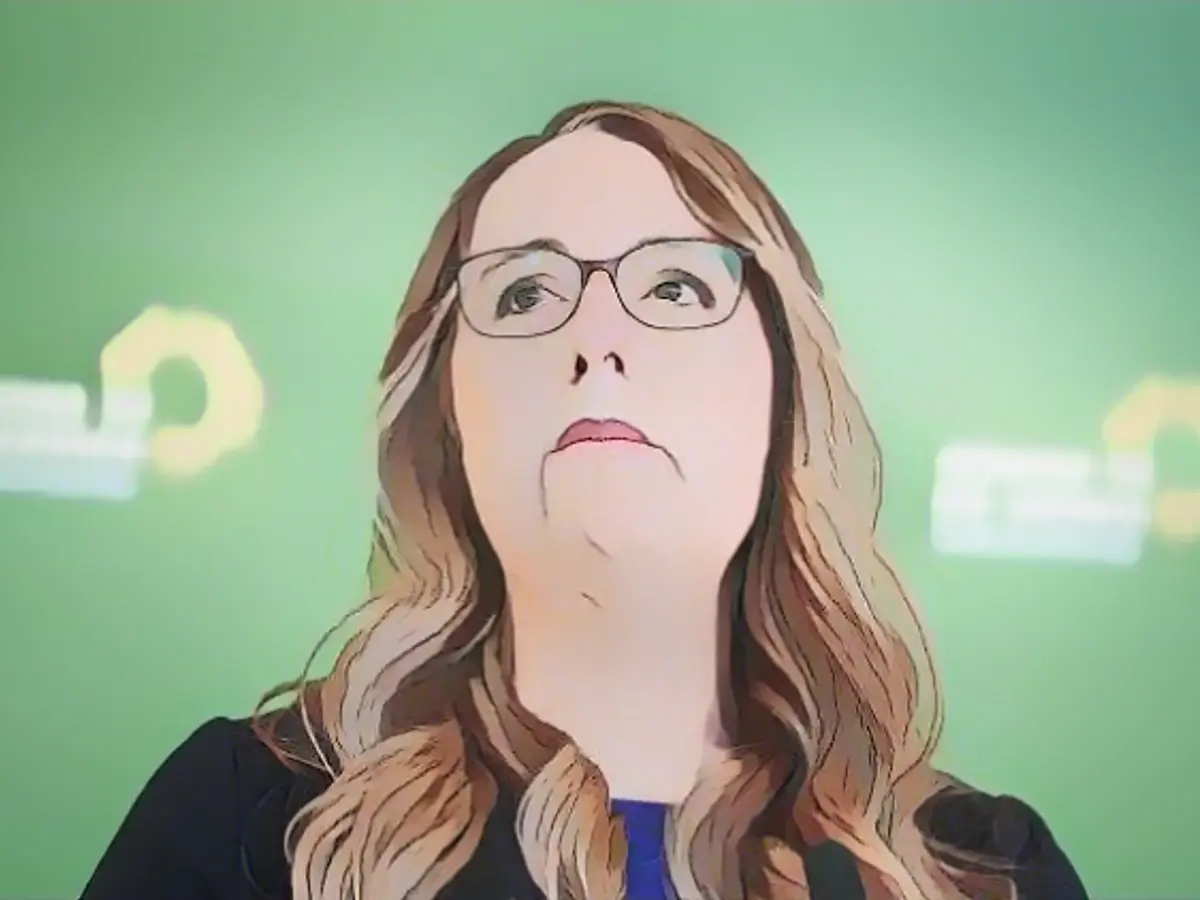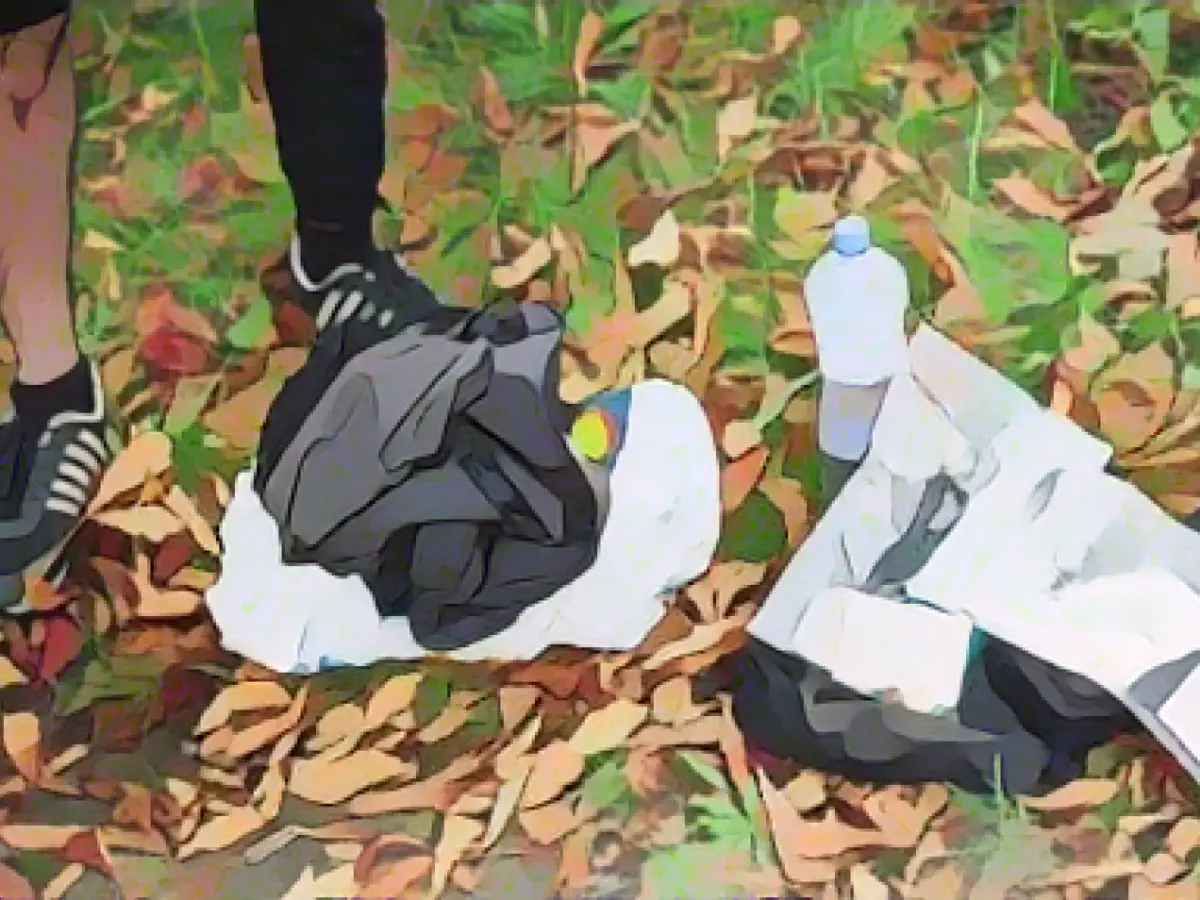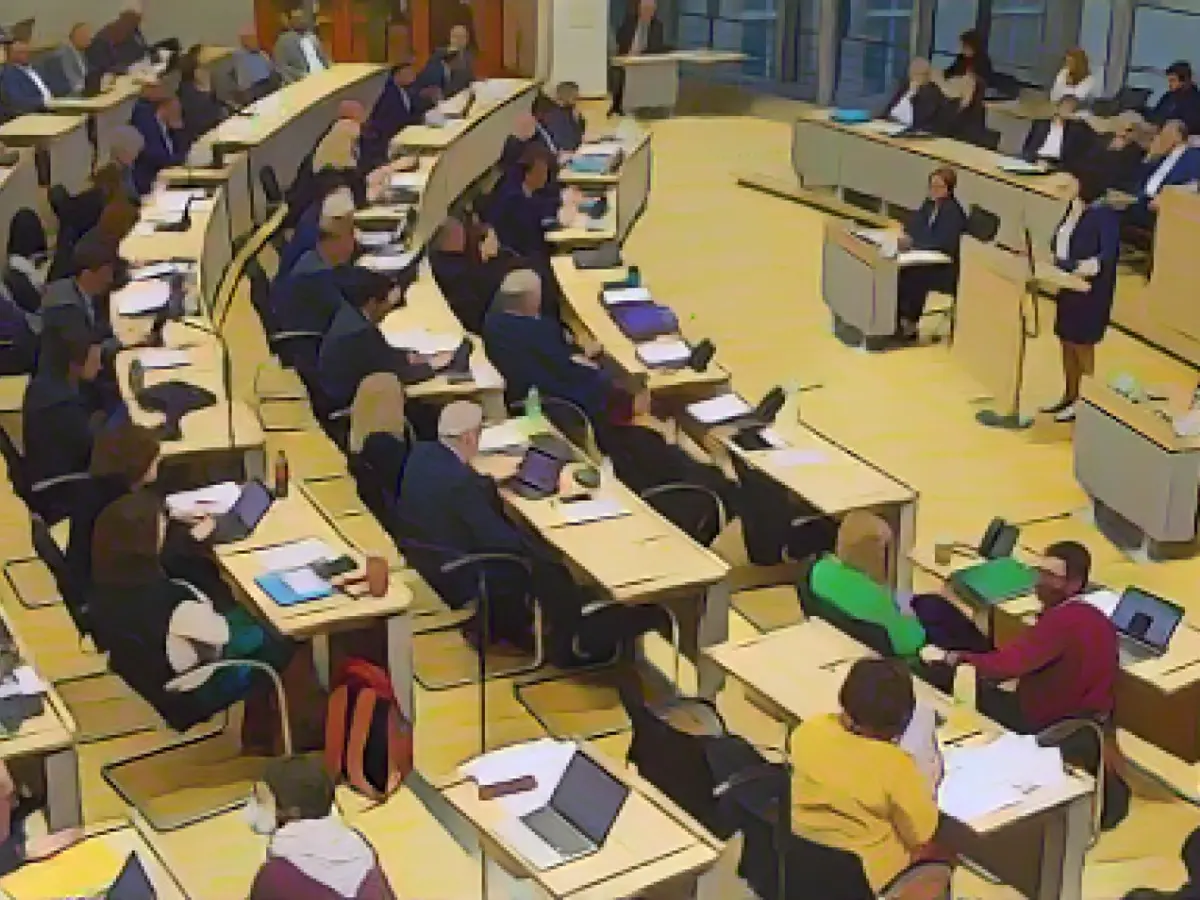In an attempt to tackle the financial crunch, CDU politician Friedrich Merz proposes holding back the increase in citizens' income next year.However, Green parliamentary group leader Katharina Dröge isn't on board with this idea. Dröge stated on ARD's Morgenmagazin that slashing funding for the social sector isn't the answer to the current challenges.She explained that the heightened cost of living necessitates an increase in the citizens' income, arguing that cutting social services could jeopardize the country's social unity.Currently, a boost of 12% in the citizens' allowance is projected for the new year.
Dröge criticized Merz's stance, labeling it as exploiting the impoverished. She alsomocked his unwillingness to impose higher taxes on the affluent during the crisis.Regarding the budget standoff, talks between the traffic light coalition are underway.This followed Federal Economics Minister Robert Habeck cancelling a planned trip to the UN Climate Change Conference at the urging of Federal Chancellor Olaf Scholz due to delays in approving the budget for the subsequent year.
While Merz advocates for halting the increase in citizens' income, Dröge might argue against this proposal on various grounds:
- Social consequences: Dröge could highlight the detrimental impact on vulnerable populations, such as young families and individuals with disabilities, if the citizens' income is not increased. This would exacerbate poverty and inequality, eroding the social safety net and potentially fueling social unrest.
- Economic effectiveness: Dröge might argue that freezing benefits would not be an effective solution to the budget crisis. Instead, it could reduce consumer spending, harming the economy. She could advocate for more targeted measures to improve fiscal responsibility, for example, by implementing progressive taxation or enhancing public services efficiency.
- Human rights and dignity: Dröge could emphasize that the citizens' income is essential for ensuring human dignity and well-being, serving as a fundamental right to a minimum livelihood. Thus, curtailing such benefits would represent a violation of those rights and potentially force individuals to prioritize between basic necessities, such as healthcare and food.
- Alternative options: Dröge might propose alternative methods to reconcile fiscal responsibility and social justice, such as raising taxes on high-income earners, promoting progressive taxation, or implementing more efficient public services to cut costs. Such measures would distribute the weight of the budget crisis more fairly and protect vital social services.
- Long-term implications: Dröge could raise concerns about the long-term drawbacks of freezing benefits. It could lead to a perpetuation of poverty and dependency, fostering a cycle of hardship. This could also undermine trust in government and institutions, potentially engendering social instability and political unrest.








